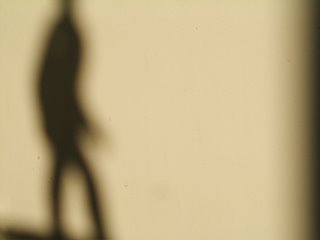'Last American Man' discussion

[well, I have decided to start posting some of my current art attempts-sketches-and-whatnot with my written posts... hope you enjoy]
Here's an eMail discussion between me and my pal Justin about 'Last American Man'
tim:
I think that what turned me off most about the first chapter of 'Last American Man' was she seemed like such a starry-eyed idealist... caught up in the fantasy of one man. whether she meant to or not - and i think she did - she wrote a book that is more than just a bio/narrative, but also proposes change/action. it's a kind of philosophy, from what I can tell. granted, I'm only to the first chapter, but I really hope that she doesn't end up seeming like some faint-hearted groupie. I am also immediately troubled by the hints at the downplay of the importance of education (book-learnin') and even cultural refinement. My idea of the "ideal man" is much closer to the 'Renaissance Man' ... a man who is tough and physically dextrous but also can express himself in the most delicate and refined ways... music, art, etc. They evolution of man from the European model to the wild Frontiersman, that she seems to praise so highly may have helped us tame the West, but it certainly lost many things for us as Men.
justin:
Anyway, I'm almost done with it now. Where did you think she was going with the book? At the beginning she kind of dwells on his childhood and how big of a jerk his dad was, but she doesn't continue with the "poor Eustace" stuff, its just that that particular relationship (between him and his dad) becomes his achilles heel later in his life, and she wants to make that clear in the beginning. She doesn't glorify him or diss him, she just paints a really good picture of him, and lets you see what the outcome is...I like it.
tim:
well, i just finished the book which i feel was really good. and i feel honestly sad. of course, i am sad for eustace who seems to be permanently scarred by his social failures. but i am even more saddened by what this book says about the 'American Man'. the author says"..the story of Eustace Conway IS the story of American Manhood" and then she goes on to describe a man who is compulsively driven; a man who "was obsessed with making money, with buying land, with success.." he has constant tragedy and heartbreak in his life. i suppose this is the story of the American Man. man of great charisma... lives by tooth and nail..
i started out criticizing the author for seeming to present Eustace as the model for the modern american man, but now i am just wishing to God she HAD. in fact, the closest she came to describing the ideal american man was straight-talking WOMAN: Susan Klimkowski (the girl that rode along on the horse-trek across america). oh well, at least we know that if we don't change our ways, we're destined to be lonely, sad, american men. did you finish it? what did you think??
justin:
Eustace looked like he was living "the simple life". When he started living out in his teepee, I think he really was living that life (although he was alone, but as we see later, that had nothing to do with the way he lived), but by the end of his story, he is scrounging for the same earthly success that everyone else is - buying land, having a successful camp, getting his message out to the world. This is sort of a real life example of how living a life that truly means something isn't dependant on tangible "success". Eustace was on the right track in some ways because he was trying something new (well, old) because he was personally interested in it, but he was all screwed up because he thought that that would be his savior (instead of, ultimately, God whom he hasn't appeared to have reconciled with yet) in terms of being a "man of destiny".
Anyone else care to run with this topic?

